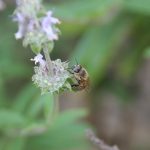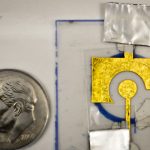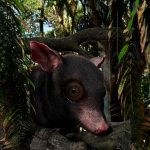Fig trees could turn CO₂ into stone, study finds
Scientists have discovered that some fig trees in Kenya can absorb carbon dioxide (CO₂) from the air and turn it into stone-like material inside...
Tortoises can feel moods like we do, scientists discover
A new study has found that tortoises may experience moods similar to humans and other animals, challenging old ideas about reptile behavior.
Researchers at the...
Scientists warn honey bees are harming native pollinators in California
While honey bees are often praised for their vital role in pollinating crops, a new study reveals they may be causing serious harm to...
Scientists use artificial lightning to make ammonia from thin air
Scientists at the University of Sydney have developed a groundbreaking new way to make ammonia—one of the world’s most essential chemicals—using a method that...
Pets get hay fever too: How to spot it and manage it
Summer often brings with it the unmistakable sniffles and sneezes of hay fever.
As plants and trees release pollen into the air, many of us...
MIT creates low-cost DNA sensors for easy, at-home disease testing
MIT engineers have developed a new kind of low-cost, easy-to-use sensor that could bring fast and affordable disease testing to people around the world—even...
The secret life of flowers: What bees want (and you’ll love too)
Across the globe, bees and other important pollinators are in trouble.
Their numbers are declining, and that’s bad news for ecosystems and the food we...
Texas-sized possum from 60 million years ago sheds light on ancient life
A newly described ancient mammal discovered in Texas is turning heads—not just for its size, but for what it reveals about life millions of...
From Pharaoh’s curse to cancer cure: Scientists turn toxic tomb fungus into life-saving drug
A fungus once feared for causing deadly infections in ancient tombs is now offering new hope in the fight against cancer.
Researchers from the University...
Why your cat might always nap on the left side
Have you ever noticed your cat always curling up to sleep on the same side? It turns out this isn’t just a random habit.
An...










